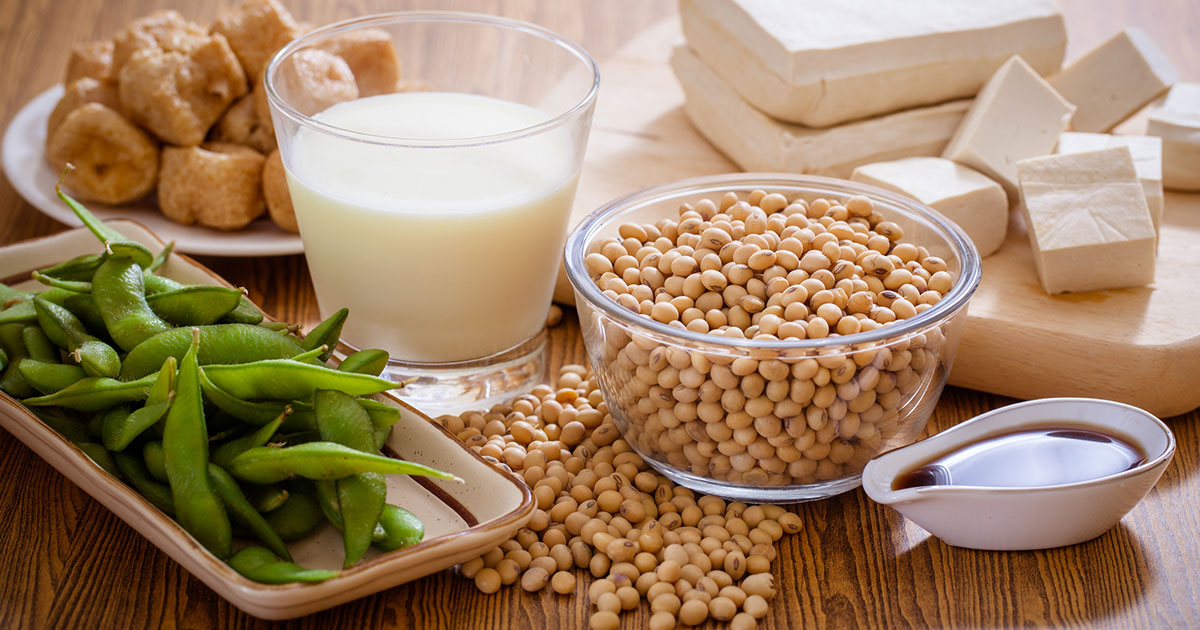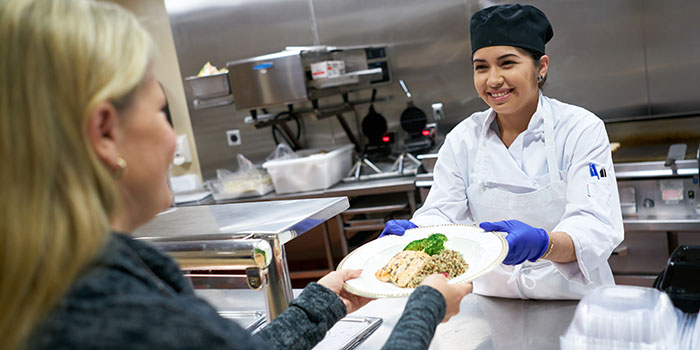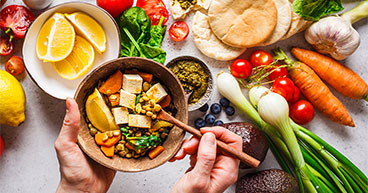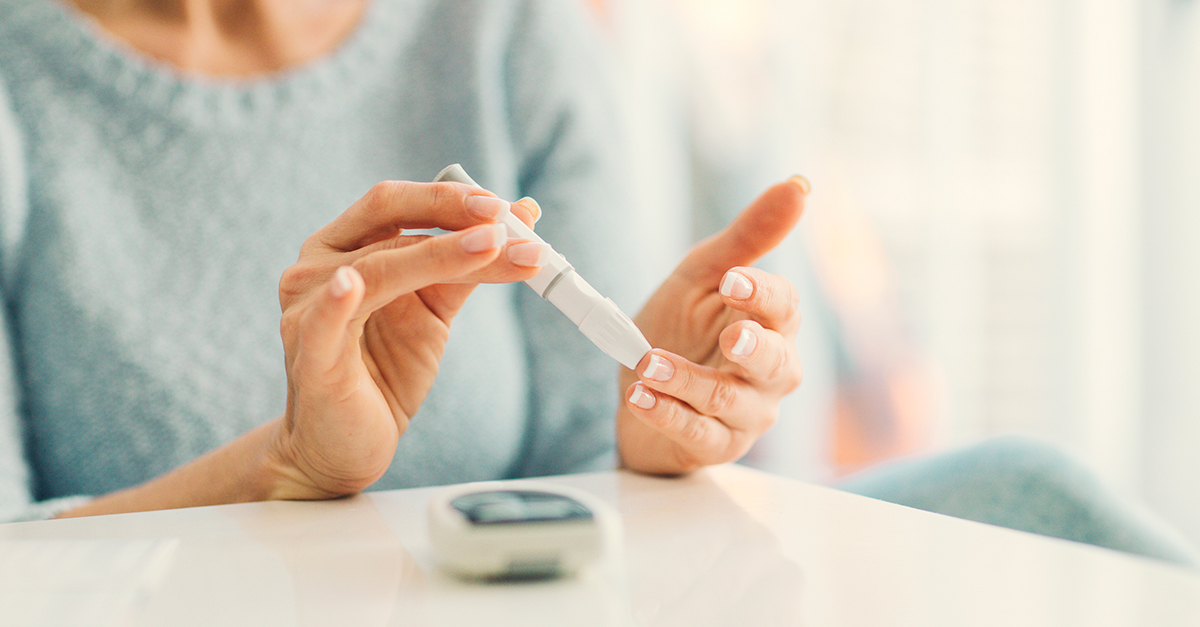
If you’re looking for a protein-packed alternative to meat, soy may be a good choice for you. Soy foods are packed with protein, beneficial amino acids and other nutrients and may be an important overall component of a vegetarian, vegan or plant-based diet.
But maybe you’ve heard a few things about soy and its connection to cancer. Can soy increase your risk of cancer, especially breast cancer? Can soy products cause hormone issues, especially in men?
Not to worry. Not only is there no proven link to cancer, some studies even suggest that eating soy products may reduce your risk of getting the disease.
In this article, we will look at:
- What is soy and why is it good for you?
- Why had soy been considered a cancer risk?
- What sources of soy are there?
- Should you limit your intake of soy?
- Nutritional support at Cancer Treatment Centers of America® (CTCA)
If you’ve been diagnosed with cancer and are interested in a second opinion about your diagnosis or treatment plan, call us or chat online with a member of our team.
What is soy and why is it good for you?
Soy foods are made from soybeans, a legume that is considered a healthy diet choice because it is high in protein and fiber and low in saturated fat. It is also cholesterol-free and lactose-free, and a good source of omega-3 fatty acids, adding to its health benefits.
It’s a versatile product that can be used in a variety of products, sometimes designed as meat substitutes, such as soy burgers, tofu sausage and Tofurky.
“It can be a good part of a plant-based diet. It’s one of the few plant foods that has all of the essential amino acids that we need, building blocks of protein like meats, and it is a nice, concentrated source of protein,” says Carolyn Lammersfeld, Vice President of Integrative Oncology and Clinical Services at CTCA®.
“There are other beneficial nutrients in soy, other reasons to consume it in addition to the protein.”
Why had soy been considered a cancer risk?
Soy is also rich in phytoestrogens, the plant form of human estrogen. This raised concerns about the effects of soy consumption, because increased levels of estrogen have been linked to an increased risk of breast cancer.
Some early studies in lab rats concluded soy may increase the risk for some cancers, such as estrogen receptor-positive breast cancer. However, later studies showed that the way phytoestrogens responded in rodents was different than the way they interacted with humans. There are different kinds of estrogen receptors in the human body. Some promote cell growth and others potentially act as tumor suppressors. It appears isoflavones may be more likely to bind to the latter.
“Most of the studies now have shown, looking at the rat studies or the rodent studies that were concerning, that humans metabolize soy different than rodents,” Lammersfeld says.
In fact, some studies have suggested the phytoestrogens from soy may have a positive effect, decreasing human estrogen levels in the body and decreasing the risk of cancer, including for breast cancer survivors worried about a cancer recurrence. It has also been shown that it may have no effect or lower risk for prostate cancer.
“The studies to date do not show that soy increases the risk of breast cancer or causes bad outcomes in women with estrogen receptor-positive breast cancer,” Lammersfeld says. “If anything, it’s a little bit the opposite. You look at Asian women who consume moderate amounts of soy as their diet, their lifestyle, they do not have worse outcomes.”
What sources of soy are there?
While soy may be a healthy part of a diet, the whole food version is preferred over supplements, Lammersfeld says. So, if you’re thinking about adding servings of soy to your diet, is that it’s probably best to use tofu, edamame, soy milk, tempeh or miso.
“We generally don’t recommend soy supplements at all. It’s always better to get any nutrients from whole foods,” she says. “We usually recommend they consume whole soy foods—whole soy beans or tofu—versus isolated soy proteins, which are a more processed food. Consuming it in the forms of pills or powders, you might get amounts of those plant estrogens, phytoestrogens, that we don’t know are safe.”
Some cancer experts are less concerned that soy supplements pose a risk. A nutrition adviser for the American Institute of Cancer Research says supplements don’t “contain any more isoflavones than an equal portion of plainly roasted soybeans.” However, the nutritionist also acknowledges “isolated soy protein doesn’t provide the dietary fiber or complete range of nutrients found in common soy foods.”
Lammersfeld says soy sauce in moderation is OK as part of a diet.
“I think the condiments are fine, other than the fact that they may have really high sodium. Some people need to be careful of that. We need to remember that people with cancer can still have high blood pressure and be at risk for heart disease, so we also want to be careful of sodium,” Lammersfeld says.
Should you limit your intake of soy?
Like most anything else, there may be a problem if soy is taken in large quantities. A 2008 study suggested a possible link between soy and gynecomastia—sometimes called “man-boobs” because it may increase a person’s breast tissue. The inference appeared to come from a trial participant who later acknowledged drinking three quarts of soy milk a day. The man’s gynecomastia reduced when he cut back on his soy intake.
“What we do say with soy is just because a little bit might be good, more isn’t necessarily better,” Lammersfeld says.
And while soy may be part of a healthy diet, it doesn’t have to be. Some people just aren’t into soy.
“If people aren’t consuming soy and don’t want to consume soy, we won’t push it, but certainly it can be a healthy part of their diet, a good source of protein for an otherwise healthy diet,” she says.
The AICR says moderate consumption of soy is about one to two standard servings of whole soy foods a day, with each serving including 7 grams of protein and 25 mg of isoflavones. Some examples of a single serving are 1/3 cup tofu, 1 cup soy milk. ½ cup edamame or ¼ cup of soy nuts.
“Studies have demonstrated up to 3 servings/day – up to 100 mg/day of isoflavones – consumed in Asian populations long-term does not link to increased breast cancer risk,” the AICR says.

Nutritional support at CTCA
Proper nutrition is an important part of cancer recovery. At CTCA, patients receive nutritional support from registered dietitians. The dietitians will address any nutrition-related deficiencies you may have—and deal with any diet-related symptoms you may experience—while helping you maintain your body weight and strength.
Nutritional support at CTCA may be used to manage multiple cancer-related symptoms and treatment side effects, including:
- Digestive issues
- Dry mouth and mouth sores
- Loss of appetite
- Malnutrition
- Nausea and vomiting
- Taste and smell changes
- Weight loss
The nutrition therapy team plays a key role in the patient-centered approach at CTCA. At CTCA, patients, depending on their needs, may meet with a registered dietitian to address side these and other side effects, evaluate the patient’s nutritional status and makes recommendations for staying nourished during and after treatment.
If you’ve been diagnosed with cancer and are interested in a second opinion about your diagnosis or treatment plan, call us or chat online with a member of our team.


